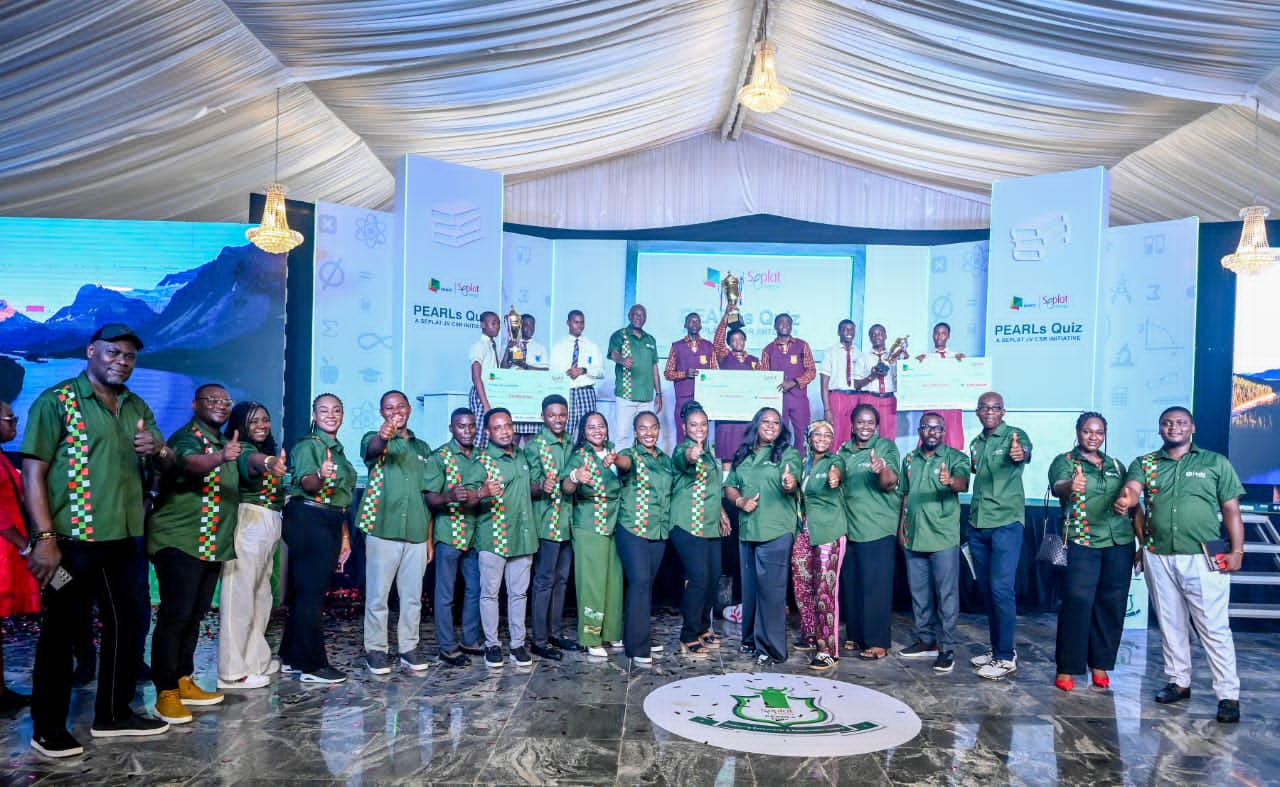• Full Implementation Of Oronsaye Report Is Vital – Uzodinma
• There Must Be Tax Reforms, And Govt Must Abide By Public Procurement Schedules – Ighedosa.
• Merge MDAs To Curtail Duplication Of Services, Corruption, – Uwagbara
The world over, human challenges come with their attendant lessons and opportunities, which if properly harnessed contribute to improving the living standards of mankind.
With the devastating impact of the lethal Coronavirus disease (COVID-19) on the global economy, institutions and nations are deploying diverse techniques and approaches to aid their recovery process and curtail the adverse impact.
Since the country’s index case was reported on February 27, 2020, just two weeks before the World Health Organisation (WHO) declared the disease a pandemic, the Federal Government through its Ministries, Departments, and Agencies (MDAs) has been coordinating a multi-sectoral response for the country through various programmes and interventions.
But to accomplish desired the desired goals from these activities, the place of an effective and efficient becomes vital, just the way it is in ensuring the country’s progress and socio-economic stability.
For instance, in line with the Presidential Task Force (PTF) guidelines on the containment of the spread of the pandemic, the Office of the Head of Service of the Federation (OHCSF) embarked on some preventive and protective measures against the pandemic.
The measures included the provision of basic hygiene and protective equipment/materials, as well as setting up hand washing points at entrances, and on all levels in buildings. This is in addition to non-contact Infrared body thermometers deployed at main entrance gates and offices; decontamination and disinfection of the Federal Secretariat Complexes were carried out in conjunction with the Federal Ministry of Environment and Federal Capital Territory Administration (FCTA).
As a way of boosting awareness among staff and visitors, signages on COVID-19 were produced and distributed while prevention tips were displayed at strategic points within the office environment.
Notwithstanding the socio-economic impact of the pandemic, proactive steps were also taken to ensure that work goes on and services still rendered to the public timeously.
Specifically, the Office of the Head of Service did embark on the dissemination of guidelines on the control of the pandemic service-wide. The guidelines were aimed at raising the preparedness and response system of all MDAs/staff to the highest level in the event of COVID-19 in the work environment and elsewhere.
The guidelines, which have already been circulated to all MDAs and also published on the website of the OHCSF, are complementary to the information provided by the Nigeria Centre for Disease Control (NCDC) as it relates to government action towards the control of the scourge.
Earlier on, the OHSF had issued service-wide circulars to MDAs to implement safety and hygiene protocols. The circulars included that, which bore the compulsory stay-at-home of non-essential public servants on Grade Level 12 and below (issued on March 23, 2020), and the partial resumption of duties by officers on Grade Level 14 and above, and those on essential duties issued on April 30, 2020.
Administratively, the office headed by Dr. Folasade Yemi-Esan also enforced the restrictions of staff on duty and entrances to the workplace, a development that drastically reduced human traffic and streamlined movement of visitors within the Federal Secretariat Complexes to only those on verifiable appointments.
The introduction of virtual/video conferencing meetings effectively put paid to physical large meetings, while meetings of the Head of Service of the Federation with Permanent Secretaries (Service-Wide), Accountant General of the Federation and Auditor General of the Federation, as well as meeting with the permanent secretaries in the Office of the Head of the Civil Service of the Federation also went virtual.
During the lockdown, Yemi-Esan also hosted a virtual interactive session with civil servants on Friday, April 17, 2020. The webinar, which lasted about two hours, had about 500 civil servants from all cadres in attendance.
It is important to note that going forward, the OHCSF is developing guidelines that would govern virtual meetings in the public service.
Away from COVID-19 specific interventions, other interventions are also ongoing. They include the implementation of the Group Life Assurance (GLA) Scheme for employees of the Federal Government in 48 MDAs for the year 2020. The office is presently reviewing the GLA implementation guidelines to provide value additions that will ensure broader coverage and benefits to the public servants.
Affordable and efficient bus service for public servants is presently on the cards as there are ongoing discussions with the Abuja Urban Mass Transport Company Ltd (AUMTCO) to provide safe, affordable, and efficient bus service. The realisation of this arrangement will further strengthen the efforts of the office to ensure adherence of public servants to the physical distancing policy of the government and also reduce high expenses on transportation.
The diverse health and economic risks resulting from the COVID-19 pandemic, and the fall in international oil prices pose significant threats to the country’s economy, its healthcare system, national security, as well as the lives of citizens.
This unfortunate scenario, therefore calls for extra-ordinary measures and steps to address these challenges.
It is in this regard that the role played by an effective civil service (as the engine room of development in determining a country’s progress and socio-economic stability) cannot be over-emphasised.
Consequently, there is the compelling need to address these unique challenges, while also charting a new civil service that would effectively promote and guarantee quick economic recovery during a future crisis.
Given the present circumstances, the chief of which is the socio-economic impact of the pandemic, the Federal Civil Service must fast-track the timely implementation of all deliverables.
This step, the OHSF is taking by putting in place a technology-driven public service that can accommodate remote work; building platforms for community engagements, ownership, and public feedback; building a conducive workplace environment for the protection of workers through relevant legislation, policies and actions; promoting new values, education, innovation, and productivity in the public service, as well as ensuring the effectiveness of the social insurance system, etc.
While the lockdown lasted, most people, including civil servants upgraded their lifestyles and lived even more digitally so as to keep pace with happenings. Expectedly, they would emerge expecting better and faster digital services.
The public service must proactively put in place structures and mechanisms to digitise administrative processes to ensure the improved and seamless running of government business.
It is, however, understood that the Office of the Head of Service is working towards implementing the following as part of its digitisation plan and proposed policy on remote working. Some of the processes to be digitised include establishment processes, recruitment processes, learning and development processes, payroll processes, and employee management processes, etc.
With this scenario, it becomes pertinent for public servants to prepare themselves for the new work that will emerge post-COVID-19, and the current situation, experts say, is an opportunity for public servants to think outside-the-box, and to develop new policies that will mitigate the effect of the COVID-19 pandemic.
For a retired Director and former Chief Press Secretary to the Federal Capital Territory (FCT) Minister, Cosmas Uzodinma, there is a need for the implementation of the merger of MDAs if the civil service is to be properly repositioned to contribute meaningfully to the nation’s socio-economic growth.
Uzodinma, who frowned at the situation where over 70 percent of government’s revenue is spent on recurrent expenditures said: “It’s time for the merger policy canvassed in the Oronsaye report to be fully implemented. If that is done, the government will save a lot of funds, which are now being spent on paying redundant workers in the MDAs. The recovered funds could be used for the provision of infrastructures, which would aid massively in the growth of the country’s economy.”
The Managing Director, Institute of Fiscal Studies, Godwin Ighedosa, said that repositioning the civil service for sustainability must take into account, factors that would strengthen and equip it with the capacity to fully function as the engine room of development, and also determine the country’s progress and socio-economic stability.
Ighedosa noted: “We need tax reforms, and government must abide by the public procurement schedules. The Federal Civil Service must also abide by the Fiscal Responsibility Act.”
A development economist, Uche Uwagbara, in his contribution said that the best way for the civil service to be repositioned is for the government to restructure the entire civil service.
“Nigeria must restructure her economy; Nigeria must restructure her political system; Nigeria must allow regional economies to emerge so that the civil servants would appreciate the fact that their employments are based on competence, and ability to perform. When people with school leaving certificates are employed to manage first and master’s degree holders, what is being encouraged is underperformance.”
According to him, the time has come to restructure the civil service, merge MDAs to reduce duplication of services, reduce corruption and nepotism among other ills of the current civil service.
Also, speaking on the way forward, a former Permanent Secretary in the Office of the Head of Service, who preferred anonymity told The Guardian that there is no amount of mechanism that is put in place that can reposition the civil service except it embraces digitisation.
According to him: “As we speak, the current civil service is still operating analog transactions that make way for manipulations and corruption, although the head of the service has put in place mechanisms to ensure smooth operations in the civil service amid COVID-19, I am assuring you that many staff may not comply strictly with the guidelines in the prevention of the dreaded disease because of lawlessness in the service.”






